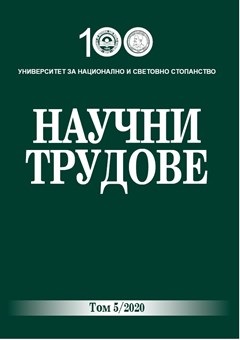Фискални съвети и бюджетна стабилност в ЕС
Fiscal Councils and the EU Budgetary Stability
Author(s): Filip PetkovSubject(s): Politics / Political Sciences, Politics, Fiscal Politics / Budgeting
Published by: Университет за национално и световно стопанство (УНСС)
Keywords: iscal union; fiscal board; fiscal integration; budgetary policy; European Union
Summary/Abstract: The objective of this research is to analyse the present stage of the EU fiscal coordination considering the effects of the independent fiscal councils in the EU member states. The research methods are content analysis, comparisons, generalizations, historical and logical approaches, statistical analysis of empirical data and its presentation in graphical format and tables. The thesis of the research is that the national fiscal boards contribute for more efficient surveillance on the numerical fiscal rules not only within the Eurozone but in the EU as a whole. They support this process through independent expertise while monitoring the macroeconomic forecasts and growth expectations, analyse the structure of the national budgets, the levels of sovereign debt as well as issuing statements and recommendations on the latter. The results of this research prove that fiscal councils support the improvement of the national budgetary policies in combination with traditional fiscal control instruments such as the Stability and Growth Pact. It is noted that they work completely independently in some countries while in others part of their administrative needs are met by a certain governmental body. The ‘double monitoring’ is positively influencing another group of countries with revamping fiscal parameters – where we have more than one independent fiscal board acting. The main conclusion on the results of the fiscal councils’ proceedings is viewed in the context of the non-binding character of their recommendations to the national governments and their contribution to the budgetary efficiency and stability in the EU. In this regard it would be necessary to endow them with instruments for inter-institutional control over the budgetary policy of the national governments without inducing higher level of federalism in the EU.
Journal: Научни трудове на УНСС
- Issue Year: 5/2020
- Issue No: 5
- Page Range: 43-59
- Page Count: 17
- Language: Bulgarian

